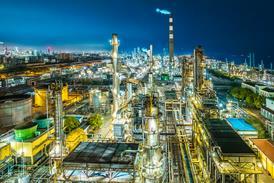UK chemical industry growth slows as companies battle rising costs and falling demand, putting jobs and future investment at risk.
Britain’s chemical industry, the nation’s second largest manufacturing exporter, has seen growth almost disappear. Figures released earlier this year by the Chemical Industries Association had indicated a return to growth, but their latest survey (reporting on quarter 3 trading) shows reductions across the board. This downturn is particularly concerning given the industry’s global impact, with chemical products present in 96% of all manufactured goods worldwide.
The main challenges for the sector remain weakening demand, uncompetitive energy costs, and rising labour costs. Companies are receiving less new orders as they are facing strong competition from cheap imports and key markets are continuing to slow. Four out of five UK chemical businesses do not see any short-term improvements to weakening demand for at least the rest of this year and into 2025.
Steve Elliott, the Association’s Chief Executive, said: “Earlier this year, almost half of chemical companies in the UK reported higher sales, production levels, and capacity utilisation; however, in our latest business survey that percentage has fallen to less than 25%, whilst 33% experienced a fall. The outlook is tough to say the least. This volatility of demand and lack of real recovery is making decision-making extremely challenging, especially with regard to longer-term investment. With UK chemical production over 25% below pre-pandemic levels and 26% of businesses reporting lower exports, UK chemical sites of international companies are struggling to compete for investment against other regions, and this has resulted in 20% of businesses cutting their business investment compared to Q2 2024.”
Steve added: “These results come as the Government takes its first steps to deliver an industrial strategy and accompanying competitive investment climate. These are very welcome and much-needed initiatives and we will be doing all we can over the coming months to ensure that ministers and officials not only recognise the criticality of UK chemical businesses to the nation’s economic, social and environmental future, but take decisive action, through long-term policy stability and competitive funding. Success here will see us strengthen the UK chemical industry’s contribution to the national economy; the country’s critical national infrastructure and the identified UK growth sectors such as advanced manufacturing, clean energy and life sciences. We have to seize the moment”.
Head of Economics at the Association, Michela Borra added “Whilst demand and energy are the two main sources of concern for our sector, developments around labour continue to impact our members. Around 13% of responding companies marked skill shortages as their main challenge and during conversations with members it is clear that it is one of areas that requires significant government attention in the upcoming industrial strategy”.
Media & PR Enquiries
For any further information please contact Simon Marsh at MarshS@cia.org.uk, 07951 389197 or Diana Tamayo at TamayoD@cia.org.uk , 07885831615.
- Businesses who make chemical products and solutions are integral to something like 96% of all manufactured goods. Whether it is ingredients for food and medicines; paints and coatings for cars and planes or materials for mobile phones and electric vehicle batteries, the chemical industry is truly the “industry of industries” – also playing a critical role in the nation’s response to Covid-19 through its supply of hand sanitiser, PPE and vaccine ingredients.
- The Association’s manifesto sets out a series of offers and asks for the Government
- Our survey was conducted between 18th September 18th and 4th October. 46 companies of all sizes from across the UK responded.
- Chemical businesses are located throughout the UK, with many of them clustered together in the North East of England, North West of England and Central Scotland. These factories and laboratories, operated by a highly trained and skilled workforce, make a significant contribution towards the UK’s productivity performance.
- Roughly 140 thousand people are employed in the sector and nearly half a million have roles that are dependent on the sector. Chemical workers typically earn around 21% more than other manufacturing industries and almost 27% more than the average worker.
- From Runcorn to the Humber Bank; from Teesside to Grangemouth, chemical businesses and their employees right across the country are essential to the Government’s levelling-up agenda.
- We are the country’s second biggest manufacturing exporters, sending goods to the value of more than £60 billion to other countries. The EU represents our most important market, but we continue to work closely with Government to inform and secure UK trade deals with other key chemical markets such as India and the USA.















